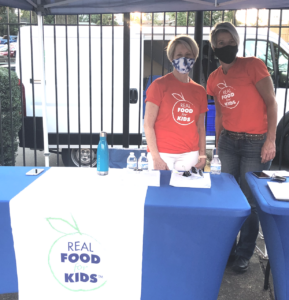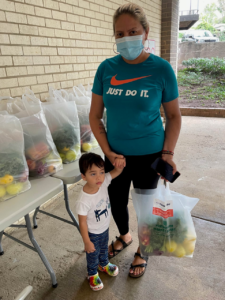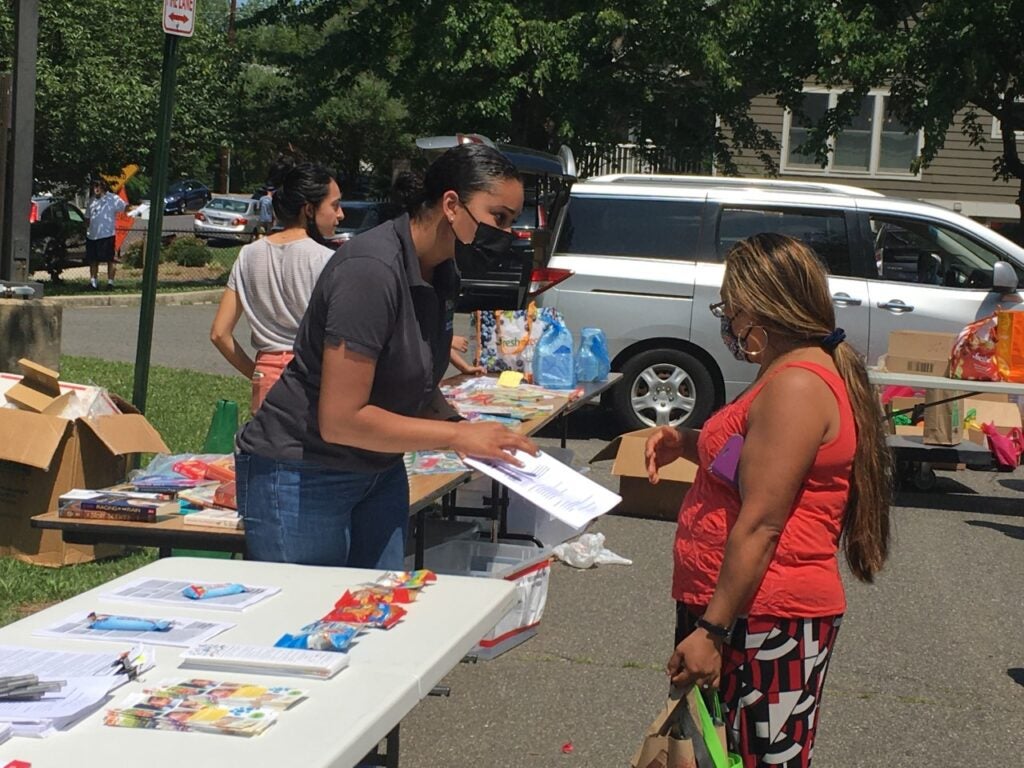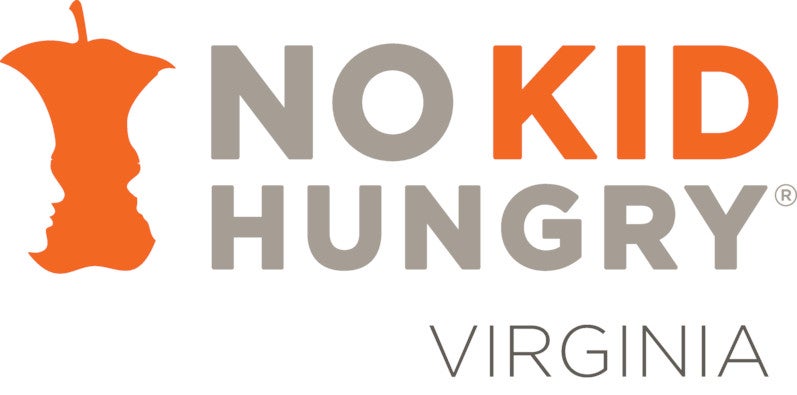During this season of celebration and gratitude, No Kid Hungry Virginia is reflecting on the people and organizations who inspire us. This is our last installment in a multi-part series that highlights the important work of No Kid Hungry Virginia grantees who ensure that kids and families stay healthy and nourished, all year round.
Real Food for Kids’ (RFFK) mission is to improve eating behaviors and health outcomes for children and families through innovative, collaborative programs in which the communities it serves play a pivotal role in creating change. RFFK’s successful work with school system partners, increasing access to healthful food and nutrition education, positioned the organization to expand its mission to address the broader challenges of food and nutrition insecurity outside school walls — challenges that disproportionately affect economically marginalized communities of color. This summer, No Kid Hungry Virginia provided Real Food for Kids with a $125,000 Community Nutrition grant in support of its SNAP outreach program in Arlington County, Virginia.
Continue reading No Kid Hungry Virginia’s interview with Bonnie Moore, Executive Director of Real Food for Kids, to learn more about the organization’s work combating food and nutrition insecurity in Arlington.

Mary Porter (L) and Bonnie Moore (R) at a SNAP Outreach event.
The COVID-19 pandemic has exacerbated long-standing systemic health, social and economic inequities, disproportionality impacting communities of color. How does racial equity and justice continue to inform your organization’s work?
Real Food for Kids’ work has always been built on an equity framework, advocating for access to fresh, whole foods and delivering nutrition education for all children in our schools. When the pandemic school closures suspended our work, we were acutely aware of how kids who rely on free and reduced meals – and their families – would be affected. It was a natural step to launch our Chefs Feeding Families initiative with area restaurants to provide nourishing, plant-forward meals to communities disproportionately impacted by high infection rates and job losses due to COVID. That pivot for us was game-changing because it opened up our mission to address the broader challenges of nutrition insecurity. That’s led to our partnership with the Arlington Department of Human Services to increase SNAP Enrollment by training SNAP Ambassadors in the community to help eligible residents get these benefits to help feed their family.
This summer, Real Food for Kids launched its new SNAP enrollment campaign in Arlington County. Can you explain the need in the community in which RFFK’s was responding?
The Arlington County Board identified food insecurity as one of its top priorities, so [we are] working with DHS to increase SNAP enrollment. It’s estimated that 30% of Arlington residents eligible for SNAP are actually enrolled. Lack of knowledge about the program, misinformation, and the uncertainty around the Public Charge Rule under the previous administration were all factors in this low number. The SNAP Ambassador program extends the arm of DHS in reaching eligible residents, providing accurate information, and helping them overcome their hesitation to enroll. Arlington is seeing an increase, some of which ties directly back to that outreach.
Principal to Real Food for Kids’ work is also centering the voices of the community in this work. Can you please share how your organization has listened and learned directly from community members to help inform your work? And how will you continue to engage the community?
The SNAP Outreach events and Enrollment Clinics have allowed us to hear from members of the community dealing with nutrition insecurity exactly what their challenges are – the access to quality, affordable fresh produce being chief among those.
Over this past summer, we shifted from distributing individual meals to providing meal kits to families to sustain them for several days. Those kits were also plant-forward with a huge number of fresh fruits and vegetables, as well as a suggested recipe and other food literacy resources. They were an enormous success. Recipients shared how much they liked making meals they knew would be nourishing for their family instead of relying on the nutrient-void foods they could afford on limited means. We recently shifted again to fresh produce bags and the enthusiasm for these has been even greater. We see first-hand how access to fresh fruits and vegetables is a desired priority, but not always attainable. We need to change that with better purchasing resources, hence the produce incentives.

A mom and child at the Serrano produce bag distribution.
What has been the impact of Real Food for Kids’ SNAP work to date?
While we have increased SNAP enrollment and awareness in Arlington, we are still in the formative phase of our SNAP work. We have received over 230 responses to a voluntary survey and have conducted 30 in-depth interviews with residents identified from the survey. That data is currently being evaluated by our research team at Virginia Commonwealth University and our communications team at Vanguard Communications.
How will Real Food for Kids embrace change in the post-pandemic world to ensure communities in northern Virginia are engaged in and supported by the organization’s work?
Many people look at Northern Virginia and see nothing but affluence. I was talking with someone at a SNAP Outreach Event in October who had worked with high-need communities in DC and Prince George’s County, and he was shocked that the same pockets of high need exist here. That’s not a situation that’s likely to change post-pandemic. While other parts of the country are seeing some relief from the crushing need for food assistance over the pandemic, Northern Virginia is not – despite the fact that Virginia as a state is doing well economically. Virginia did expand eligibility for SNAP recipients, so the state is on the right track recognizing the challenges low-income residents face in a state that is expensive to live in. Expanding SNAP is a critical first step. Now we need to make sure that SNAP addresses not just food insecurity but nutrition insecurity.
We’re definitely in this for the long-haul. And we experience the rewards every day.
When we get a new SNAP enrollee or one of our residents tells us what they made with their produce bag. We can make a dent in nutrition insecurity, but it needs to happen at this granular level, building lasting relationships. And that’s how we love to work.
No Kid Hungry Virginia appreciates Bonnie and her team for their dedication to Arlington’s families. To learn more about Real Food for Kids’ work, visit https://www.realfoodforkids.org/ or @realfoodforkids on social media.

SNAP Ambassador, Kayla Reid from AFAC, at a SNAP Outreach Clinic event at Barcroft Elementary School.






